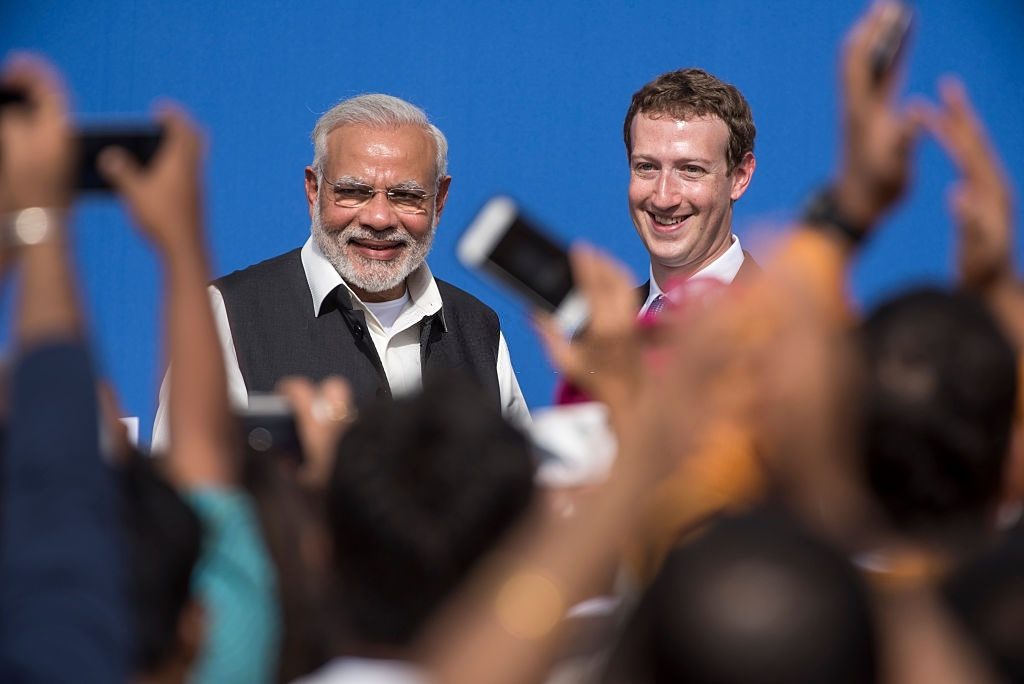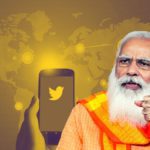Restrictions on hate speech and provocative media content and fake news on Facebook have been a point of controversy ever since the social media giant announced it would examine the posts of US President Donald Trump.
The move came in the wake of the nationwide protests in the US over the killing of George Floyd, a Black man when he was being arrested by police.
Facebook and Twitter have earlier taken some extraordinary action against President Trump for allegedly spreading coronavirus misinformation after his official and campaign accounts broke their rules, respectively.
However, as per a report in Washington Post, Facebook India turned a blind eye to hate speech by a BJP leader and three other “Hindu nationalist individuals and groups” to avoid hurting the social media platform’s business prospects in its largest market.
In a 14 August report headlined “Facebook’s Hate-Speech Rules Collide With Indian Politics”, The Wall Street Journal has cited former and current Facebook employees as stating that the aforementioned accounts, flagged for “promoting or participating in violence”, were spared a ban at the intervention of the company’s top public policy executive in the country, Ankhi Das.
Facebook, however, has attempted to deny the impression that political compulsions were a factor in its decision-making. Facebook said it prohibits “hate speech and content that incites violence and we enforce these policies globally without regard to anyone’s political position or party affiliation”.
The BJP leader quoted in the WSJ report is Telangana MLA T. Raja Singh, who has been associated with multiple provocative social media posts against Muslims.
“The current and former Facebook employees said Ms. Das’s intervention on behalf of Mr. Singh is part of a broader pattern of favoritism by Facebook toward Mr. Modi’s Bharatiya Janata Party and Hindu hard-liners,” the report adds.
According to the report, Facebook spokesperson Andy Stone “acknowledged that Ms. Das had raised concerns about the political fallout that would result from designating Mr. Singh a dangerous individual, but said her opposition wasn’t the sole factor in the company’s decision to let Mr. Singh remain on the platform”.
“The spokesman said Facebook is still considering whether a ban is warranted,” the report added, quoting Facebook as saying that Singh “is no longer permitted to have an official, verified account, designated with a blue check mark badge.
Neither Das, Singh nor the BJP responded to requests for comment from the WSJ, the newspaper said, further adding that the Prime Minister’s Office spokesperson refused to comment.
Pressure on social media to crack down on hate speech
The WSJ report comes as global social media giants find themselves under increasing pressure to crack down on hate speech, which is frequently blamed for triggering actual violence. The role of social media in hate speech has been alleged to be a factor in the two most recent episodes of communal rage in India, namely, the Delhi and Bengaluru riots.
In the US, Facebook’s perceived failure to control hate speech has generated a boycott campaign involving some of the country’s top advertisers.
Facebook’s alleged inaction on hate speech also puts a question marks on independence of various institutions in India from the government. Given that in the US the social media platforms have taken actions against the president of the country of its origin.
Some posts were removed after the report surfaced
The WSJ report claims that some of Singh’s controversial posts were removed by Facebook soon after its reporters asked queries about them.
Comparable charges have been made about posts made by two other controversial BJP leaders — Kapil Mishra and MP Anantkumar Hegde — who is known for frequent provocative remarks on social media.
A February speech by Mishra — threatening vigilante action against anti-Citizenship Amendment Act protesters in northeast Delhi, hours before the area erupted in riots — was cited by Facebook CEO Mark Zuckerberg as a textbook example of hate speech.
As he sought to pacify employees’ concerns about Facebook’s alleged inaction on hate speech, Zuckerberg said they had removed a video of the speech uploaded by Mishra.
Facebook said it acts against hate speech but acknowledged that more needs to be done. “While we know there is more to do, we’re making progress on enforcement and conduct regular audits of our process to ensure fairness and accuracy.”
You may also like: 10 Ways COVID-19 Pandemic Will Change Our Lives, forever
Is India being the largest marked influencing facebook actions against hate speech
The WSJ report starts with a remark of Facebook posts and public appearances where Singh has “(said) Rohingya Muslim immigrants should be shot, called Muslims traitors and threatened to raze mosques”. Another post cited is a call to “slaughter” Muslims who kill cows, an animal sacred to Hindus.
The report then quotes former and current employees as saying that, by March 2020, they had decided that Singh warranted the company’s “dangerous” label — a designation that reportedly also takes into account an individual’s “off-platform” activities and has resulted in Facebook bans for white supremacist organizations, Right-wing conspiracy theorist Alex Jones, and American Islamic extremist Louis Farrakhan.
Das, however, “opposed applying hate-speech rules” to Singh and “at least three other Hindu nationalist individuals and groups” flagged by employees for promoting violence.
“Ms. Das, whose job also includes lobbying India’s government on Facebook’s behalf, told staff members that punishing violations by politicians from Mr. Modi’s party would damage the company’s business prospects in the country, Facebook’s biggest global market by a number of users, the current and former employees said,” the report adds.
Facebook has close to 300 million users in India, with its chat platform WhatsApp accounting for 400 million subscribers. The company is also awaiting government permission to tap India’s burgeoning digital payments market and looking to establish a wider presence as part of its $5.7 billion partnership with Reliance Jio.



